หลักการใช้ Can Could
ในภาษาไทย เรามักใช้คำว่า “can” เพื่อแสดงถึงความสามารถของบุคคลหรือสิ่งของในปัจจุบัน และใช้ “could” เพื่อแสดงถึงความสามารถที่เป็นไปได้ในอดีต อย่างไรก็ตาม ในภาษาอังกฤษ การใช้ “can” และ “could” ไม่จำกัดเฉพาะแต่การแสดงความสามารถเท่านั้น ยังมีการใช้ทั้งการขออนุญาต การแสดงความน่าจะเป็น การสร้างคำถามในข้อเสนอ แสดงความชิดหรือความสุภาพในการขออนุญาต และการให้คำแนะนำหรือแสดงความเห็นด้วย ในบทความนี้ เราจะพูดถึงการใช้ “can” และ “could” ในรายละเอียด
1. การใช้ “can” เพื่อแสดงความสามารถปัจจุบัน
เราใช้ “can” เพื่อแสดงถึงความสามารถที่เป็นเรื่องปกติ หรือสามารถที่จะทำได้ในปัจจุบัน เช่น
– I can speak English fluently. (ฉันพูดภาษาอังกฤษได้เป็นภาษาอังกฤษ)
– He can play the piano very well. (เขาเล่นเปียโนได้เก่งมาก)
2. การใช้ “can” เพื่อหมายถึงการขออนุญาต
เมื่อเราต้องการขออนุญาตหรือให้คนอื่นทำบางสิ่งเพื่อให้เราสัมผัสถึงประโยชน์ หรือต้องการให้สิ่งใดสิ่งหนึ่งเกิดขึ้น เราสามารถใช้ “can” เพื่อขออนุญาต ตัวอย่างเช่น
– Can I use your phone? (ฉันขอยืมโทรศัพท์ของคุณได้ไหม)
– Can you help me with this? (คุณช่วยฉันด้วยได้ไหม)
3. การใช้ “can” เพื่อแสดงความน่าจะเป็นหรือความเป็นไปได้ในอนาคต
ในบางครั้ง เราใช้ “can” เพื่อแสดงถึงความน่าจะเป็นหรือความเป็นไปได้ในอนาคต เช่น
– It can rain tomorrow. (อาจมีฝนตกพรุ่งนี้)
– They can arrive late. (พวกเขาสามารถมาสายได้)
4. การใช้ “can” เพื่อสร้างคำถามในข้อเสนอ
เมื่อเราต้องการสอบถามความเห็นหรือความพอใจของผู้อื่น เราสามารถใช้ “can” เพื่อสร้างคำถามในข้อเสนอ เช่น
– Can we have a meeting tomorrow? (เราจะได้ประชุมพรุ่งนี้ได้ไหม)
– Can I suggest an idea? (ฉันขอเสนอความคิดหนึ่งเสนอได้ไหม)
5. การใช้ “could” เพื่อแสดงความสามารถที่เป็นไปได้ในอดีต
“Could” มักใช้ในรูปความสามารถที่เป็นไปได้ในอดีต เป็นไปตามเหตุการณ์หรือเงื่อนไขที่แสดงอยู่ เช่น
– He could swim across the river when he was young. (เขาสามารถว่ายน้ำข้ามแม่น้ำเมื่อเขายังเป็นเด็ก)
6. การใช้ “could” เพื่อแสดงความเป็นไปได้ในอนาคต
เราสามารถใช้ “could” เพื่อแสดงความเป็นไปได้ในอนาคตเช่นเดียวกัน เมื่ออิงอยู่กับเงื่อนไขหรือสถานการณ์ที่อาจเกิดขึ้น เช่น
– She could travel the world if she had enough money. (เธออาจเที่ยวทั่วโลกถ้าเธอมีเงินเพียงพอ)
– I could come to the party if I finish my work in time. (ฉันอาจมาเป็นปาร์ตี้ถ้าฉันทำงานเสร็จเวลา)
7. การใช้ “could” เพื่อแสดงความชิดกับความสุภาพในการขออนุญาต
เมื่อเราต้องการขออนุญาตอย่างสุภาพ เราสามารถใช้ “could” ในประโยคที่เป็นคำขอได้ เช่น
– Could I borrow your pen? (ขอยืมปากกาของคุณได้ไหม)
– Could you please turn down the music? (คุณกรุณาเลือกเพลงเล็กลงได้ไหม)
8. การใช้ “could” เพื่อเป็นการให้คำแนะนำหรือแสดงความเห็น
เราสามารถใช้ “could” เพื่อให้คำแนะนำหรือแสดงความเห็น เช่น
– You could try using a different approach. (คุณสามารถลองใช้วิธีที่ต่างไป)
– I think you could improve your presentation. (ฉันคิดว่าคุณสามารถปรับปรุงงานนำเสนอของคุณได้)
9. รูปแบบที่ไม่ถูกต้องในการใช้ “can” และ “could”
ในบางกรณี เราจะใช้รูปแบบที่ไม่ถูกต้องในการใช้ “can” และ “could” เช่น
– She cans swim across the river. (เธอสามารถว่ายน้ำข้ามแม่น้ำได้)
ในที่นี้ คำว่า “cans” ควรเป็น “can”
– He could to come to the party if he wants. (เขาสามารถมาปาร์ตี้ถ้าเขาชอบ)
ในที่นี้ คำว่า “could” ควรเป็น “could”
หลักการใช้ could, can could ต่างกันยังไง, can could would ใช้ยังไง, การใช้ can ในประโยค, could คืออะไร, could couldn’t ใช้ยังไง, การใช้ can’t, Can, Could May/Might คือหลักการใช้ can could
หลักการใช้ “can” และ “could” ในภาษาไทยเน้นไปที่การแสดงความสามารถและการขออนุญาต โดยใช้ “can” เพื่อแสดงถึงความสามารถปัจจุบัน และใช้ “could” เพื่อแสดงถึงความสามารถที่เป็นไปได้ในอดีต ทั้งนี้การใช้ “can” และ “could” ยังมีรูปแบบการใช้ที่หลากหลายมากเกี่ยวกับการแสดงความน่าจะเป็นความเป็นไปได้ในอนาคต การสร้างคำถาม แสดงความชิดหรือความสุภาพในการขออนุญาต และการให้คำแนะนำหรือแสดงความเห็น อย่างไรก็ตาม เราควรระมัดระวังเรื่องรูปแบบที่ไม่ถูกต้องในการใช้ “can” และ “could” อย่างเช่นการใช้รูปกริยาผิด การใช้ “can” หรือ “could” อย่างไม่เหมาะสม สำหรับคำถามเกี่ยวกับ “หลักการใช้ could, can could ต่างกันยังไง, can could would ใช้ยังไง, การใช้ can ในประโยค, could คืออะไร, could couldn’t ใช้ยังไง, การใช้ can’t, Can, Could May/Might คือหลักการใช้ can could” จะได้รับการพูดถึงในส่วนถัดไปในแบบถาม-ตอบ
FAQs:
1. “หลักการใช้ could, can could ต่างกันยังไง?”
การใช้ “could” แสดงถึงความสามารถที่เป็นไปได้ในอดีตและอนาคต ในขณะที่ “can” แสดงถึงความสามารถปัจจุบัน
2. “can could would ใช้ยังไง?”
– “can” ใช้เพื่อแสดงความสามารถปัจจุบัน
– “could” ใช้เพื่อแสดงความสามารถที่เป็นไปได้ในอดีตหรืออนาคต
– “would” ใช้เพื่อแสดงความน่าจะเป็นหรือความเป็นไปได้ในอนาคต
3. “การใช้ can ในประโยค, could คืออะไร?”
– “can” ใช้เพื่อแสดงความสามารถปัจจุบัน หรือการขออนุญาต
– “could” ใช้เพื่อแสดงความสามารถที่เป็นไปได้ในอดีตหรืออนาคต
4. “could couldn’t ใช้ยังไง?”
– “could” ใช้เพื่อแสดงความสามารถที่เป็นไปได้ในอดีตหรืออนาคต
– “couldn’t” เป็นรูปปฏิเสธของ “could” เช่น “
Can กับ Could ใช้ต่างกันยังไง? | English Tips
คำสำคัญที่ผู้ใช้ค้นหา: หลักการใช้ can could หลักการใช้ could, can could ต่างกันยังไง, can could would ใช้ยังไง, การใช้ can ในประโยค, could คืออะไร, could couldn’t ใช้ยังไง, การใช้ can’t, Can, Could May/Might คือ
รูปภาพที่เกี่ยวข้องกับหัวข้อ หลักการใช้ can could
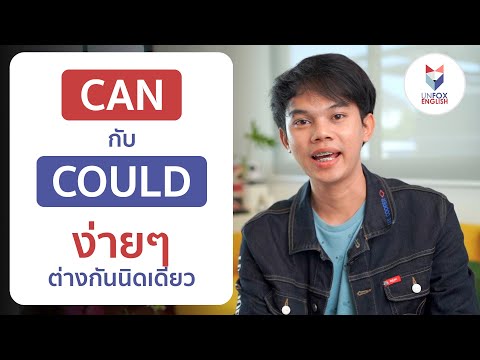
หมวดหมู่: Top 10 หลักการใช้ Can Could
ดูเพิ่มเติมที่นี่: lasbeautyvn.com
หลักการใช้ Could
Could เป็นคำช่วยกรรมที่มักจะใช้เพื่อแสดงถึงความสามารถในอดีต หรือการทำในบางกรณีที่อาจเป็นไปได้ ในภาษาไทย เรามักจะใช้คำว่า “สามารถ” เพื่อแสดงถึงความหมายของ could ในประโยค
หลักการใช้ could นั้นมีหลายกรณี โดยตามจะถูกใช้อย่างถูกต้องหากเราเข้าใจถึงการให้ความหมายของคำนี้ ดังนี้เป็นต้นอย่าง ในกรณีที่เราต้องการจะแสดงถึงความสามารถหรือการทำแบบเป็นไปได้ในอดีต เราสามารถใช้ could มาบอกถึงบุคคลที่อยู่ในตำแหน่งช่วยกรรมได้เพื่อกระทำการนั้น ๆ เช่น
1. She could swim when she was five. (เธอสามารถว่ายน้ำได้ตอนที่เธออายุห้า)
2. They could speak fluent Chinese when they lived in Beijing. (พวกเขาสามารถพูดภาษาจีนได้อย่างถนัดเมื่อพวกเขาอาศัยอยู่ที่ปักกิ่ง)
นอกจากนี้ เรายังสามารถใช้ could เพื่อแสดงถึงความสามารถหรือการทำในขณะนี้ที่ไม่เร็วตามที่คาดหวังได้ หรืออาจไม่เป็นไปได้จริง แต่มีโอกาสเกิดขึ้น เราสามารถใช้ could เพื่อแสดงความยอมรับถึงความเป็นไปได้นี้ได้ เช่น
1. We could go to the beach this weekend if the weather is good. (เราอาจจะไปชายหาดในสุดสัปดาห์นี้ได้หากสภาพอากาศดี)
2. They could win the competition if they practice more. (พวกเขาอาจจะชนะการแข่งขันได้หากพวกเขาฝึกฝนมากขึ้น)
นอกจากนี้ เรายังสามารถใช้ could เพื่อให้คำสั่งหรือขอร้องอย่างสุภาพ โดยไม่ต้องก้าวกระโดดเสียง ซึ่งแตกต่างจากกรณีที่อยู่ในอดีตหรือความสามารถเช่น
1. Could you close the door, please? (คุณช่วยปิดประตูหน่อยได้ไหม?)
2. Could I borrow your pen? (ผมขอยืมปากกาของคุณได้ไหม?)
จากตัวอย่างที่ได้ยกตัวอย่างข้างต้น เราสามารถสรุปได้ว่า could ในภาษาไทยมักจะถูกใช้อย่างสอดคล้องกับคำว่า “สามารถ” โดยมีข้อควรระวังกรณีที่มีคำค้นหาซ้ำกันเช่นมี could และ can ด้วยกัน ซึ่งในบางครั้งอาจทำให้เกิดความสับสนในการใช้งาน
คำถามที่พบบ่อย (FAQs):
Q: Could และ can นั้นมีความหมายต่างกันอย่างไร?
A: Could เป็นคำกริยาช่วยกรรมที่ใช้เพื่อแสดงถึงความสามารถหรือการทำในอดีต หรือการทำที่ไม่เร็วตามที่คาดหวังได้ในปัจจุบัน ในขณะที่ can เป็นคำกริยาช่วยกรรมที่ใช้เพื่อแสดงถึงความสามารถหรือการทำในปัจจุบันที่เป็นไปได้จริง
Q: สามารถใช้ could ร่วมกับกริยาช่องที่ 2 ได้หรือไม่?
A: ในภาษาไทย เรามักจะใช้กริยาช่องที่ 2 กับ could เพื่อแสดงถึงความสามารถหรือการทำที่ไม่เร็วตามที่คาดหวังได้ เช่น “I could have finished the project yesterday.” (ฉันสามารถทำโครงการเสร็จเมื่อวานนี้ได้)
Q: Could สามารถใช้แทนรูปแบบเหมือน must ได้หรือไม่?
A: ไม่สามารถ โดยทั่วไป must ใช้เพื่อแสดงคำสั่งหรือข้อกำหนดที่เป็นเงื่อนไขจำเป็นในการกระทำ ในขณะที่ could ใช้เพื่อแสดงความหน่วงเหมือนกับโอกาสหรือข้อเสนอแนะ
ในสรุป could ในภาษาไทยมักจะถูกใช้อย่างถูกต้องเมื่อเราต้องการแสดงถึงความสามารถในอดีต หรือการกระทำในปัจจุบันที่เป็นไปได้ โดยควรระวังในการใช้งานเพื่อไม่ให้เกิดความสับสนกับ can ในกรณีที่คล้ายคลึงกัน หวังว่าคำอธิบายในบทความนี้จะเพิ่มความเข้าใจและความชัดเจนในการใช้ could ในภาษาไทยได้อย่างแท้จริง
Can Could ต่างกันยังไง
When learning a new language, understanding the subtle nuances between different words and phrases can be quite challenging. This is particularly true for learners of the Thai language. One common source of confusion among Thai learners is the distinction between the words “can” and “could.” In Thai, these words are translated as “สามารถ” (sa-ma-tor) and “อาจ” (aht), respectively. In this article, we will explore the differences between “can” and “could” in Thai and provide examples to help you grasp their meanings. Let’s delve into the intricacies of these words to enhance your understanding of Thai grammar!
The Usage of สามารถ (can)
In Thai, “can” is translated as “สามารถ” (sa-ma-tor) and is used to express the ability to perform an action in the present or future. It indicates that something is possible or within one’s capability. For instance:
1. ผมสามารถพูดภาษาไทยได้ (Pom sa-ma-tor pood phaa-sa thai dai) – I can speak Thai.
2. คุณสามารถเขียนมันส์คลับสำหรับเด็กได้ไหม (Khun sa-ma-tor kian Mun Club sam-rap dek dai mai) – Can you write a fun club for kids?
3. เขาสามารถเล่นดนตรีได้ทุกเครื่อง (Khao sa-ma-tor len don-tri dai thuk krueang) – He can play all musical instruments.
The Usage of อาจ (could)
On the other hand, “could” is translated as “อาจ” (aht) in Thai. “Could” is mainly used to express a possibility or capability in the past. It portrays the ability to perform an action that is conditional or potential. Let’s take a look at some examples:
1. ผมอาจพูดภาษาไทยได้ (Pom aht pood phaa-sa thai dai) – I could speak Thai.
2. คุณอาจใช้เงินสำหรับการเรียนคอร์สภาษาได้ (Khun aht chai ngern sam-rap kan rian course phaa-sa dai) – You could use money for language course fees.
3. เขาอาจเลือกไม่ปฏิบัติตามกฎระเบียบ (Khao aht leuak mai bpa-dtik-bat tam kot-ra-briap) – He could choose not to obey the rules.
The Differences between สามารถ (can) and อาจ (could)
While both “สามารถ” (sa-ma-tor) and “อาจ” (aht) convey the idea of ability or possibility, their usage and implications differ. Here are some key differences between these two words in Thai:
1. Time Reference: “สามารถ” (sa-ma-tor) is used to express present or future abilities, while “อาจ” (aht) is employed to refer to past capabilities.
2. Certainty: “สามารถ” (sa-ma-tor) implies a higher level of certainty and confidence in one’s ability, whereas “อาจ” (aht) suggests a lower level of certainty or a possibility that may not always occur.
3. Politeness: “สามารถ” (sa-ma-tor) is generally considered more polite and respectful compared to “อาจ” (aht).
4. Conditional Context: “อาจ” (aht) is frequently used in conditional sentences where the possibility of an action depends on certain conditions being met.
Frequently Asked Questions (FAQs)
Q1. Can “สามารถ” be used to express past abilities?
A1. No, “สามารถ” is primarily used to express present or future abilities. To express past abilities, “อาจ” (aht) is used instead.
Q2. Can “สามารถ” and “อาจ” be used interchangeably?
A2. No, they cannot be used interchangeably. “สามารถ” implies a higher level of certainty and indicates the ability to perform an action, while “อาจ” suggests a possibility or potentiality.
Q3. Is it considered impolite to use “อาจ” instead of “สามารถ”?
A3. It is not necessarily impolite, but using “อาจ” in situations where “สามารถ” is more appropriate may be perceived as less polite or assertive.
Q4. Are there any other words in Thai that are equivalent to “can” and “could”?
A4. Yes, in addition to “สามารถ” and “อาจ,” “แทบจะ” (taep ja) can also be used to express the meaning of “could” in certain contexts.
Q5. How can I practice using “สามารถ” and “อาจ” effectively in Thai?
A5. To improve your understanding and usage of these words, try incorporating them into your daily conversations and writing. Regular practice and exposure to varied examples will help you become more comfortable with their usage.
Now that you have a better grasp of the differences between “สามารถ” (sa-ma-tor) and “อาจ” (aht), you can confidently use them in your Thai language endeavors. Remember to pay attention to the context, time reference, and subtleties of each word to ensure accurate usage. With practice, you will gradually develop a natural instinct for choosing between “สามารถ” and “อาจ,” enhancing your fluency in the Thai language. Happy learning!
Can Could Would ใช้ยังไง
Can (สามารถ – sa-maa-rót)
In Thai, can is translated as สามารถ (sa-maa-rót). It is used to express ability or possibility in the present or future tense. When using สามารถ, the verb that follows remains in its base form without any changes.
Example sentences:
1. เขาสามารถวิ่งได้เร็วมาก (kăo sa-maa-rót wîng dâi rêo mâak) – He can run very fast.
2. ฉันสามารถพูดภาษาอังกฤษได้ (chăn sa-maa-rót pûud paa-săa ang-grìt dâi) – I can speak English.
Could (อาจ – àat)
Could is translated as อาจ (àat) in Thai. It is used to express possibility or ability in the past or conditional statements. To use อาจ, the verb that follows remains in its base form without any changes.
Example sentences:
1. เขาอาจช่วยเราได้ (kăo àat chûay rao dâi) – He could help us.
2. ฉันอาจเข้าไปร้านอาหารทานข้าวได้ (chăn àat vào bpai rán aa-hăan dtaan kâao dâi) – I could go to a restaurant to eat rice.
Would (จะ – jà)
Would is translated as จะ (jà) in Thai. It is used to express future possibilities, intentions, or hypothetical situations. When using จะ, the verb that follows does not need any changes.
Example sentences:
1. เขาจะช่วยเราในการเตรียมพร้อม (kăo jà chûay rao nai gaan dtriiam phráawm) – He would help us prepare.
2. ถ้าฉันมีเวลาว่างฉันจะไปเที่ยวเมืองนิวยอร์ก (thâa chăn mii waeh-laa wâng chăn jà bpai thîao meuang niu-yôrk) – If I have free time, I would visit New York City.
FAQs:
Q: Can these auxiliary verbs be used interchangeably?
A: No, they cannot. Each auxiliary verb has its unique usage and meaning. While they can sometimes convey similar ideas, their nuances differ.
Q: Are there any specific rules for using these auxiliary verbs?
A: Yes, there are certain rules to follow when using these auxiliary verbs. However, it is important to note that Thai grammar and syntax may differ from English. Understanding the context and structures of Thai sentences is crucial.
Q: Are there any exceptions to the usage of these auxiliary verbs?
A: Yes, there can be exceptions, especially in complex sentences. To fully grasp the correct usage, it is advisable to study Thai language resources, practice speaking, and seek guidance from native speakers.
Q: Are there any other ways to express possibility or hypothetical situations in Thai?
A: Yes, Thai has various ways to express possibility or hypothetical situations, such as using adverbs like อาจจะ (àat-jà) or using different sentence structures. Learning these additional forms will enhance your ability to communicate effectively.
Q: How can I improve my understanding and usage of can, could, and would in Thai?
A: To improve your understanding and usage, it is recommended to practice speaking and writing Thai regularly. Engage in conversations with native speakers, listen to Thai audio materials, and study sentence patterns using can, could, and would in different contexts.
In conclusion, understanding how to properly use can, could, and would in Thai is essential for effective communication. By remembering the translations สามารถ (sa-maa-rót), อาจ (àat), and จะ (jà), and their respective uses, you can broaden your understanding of Thai grammar and express yourself more fluently.
มี 42 ภาพที่เกี่ยวข้องกับหัวข้อ หลักการใช้ can could.










![How to] Use Can could may might - สรุปเนื้อหาภาษาอังกฤษข้อสอบ Grammar How To] Use Can Could May Might - สรุปเนื้อหาภาษาอังกฤษข้อสอบ Grammar](https://3.bp.blogspot.com/-uXyEKFxfTZA/WsLYiCplAmI/AAAAAAAABJY/LVYtTFotT5UnsNCwH0qToq-MeshjM5ytgCLcBGAs/w1200-h630-p-k-no-nu/can%2B%25281%2529.jpg)









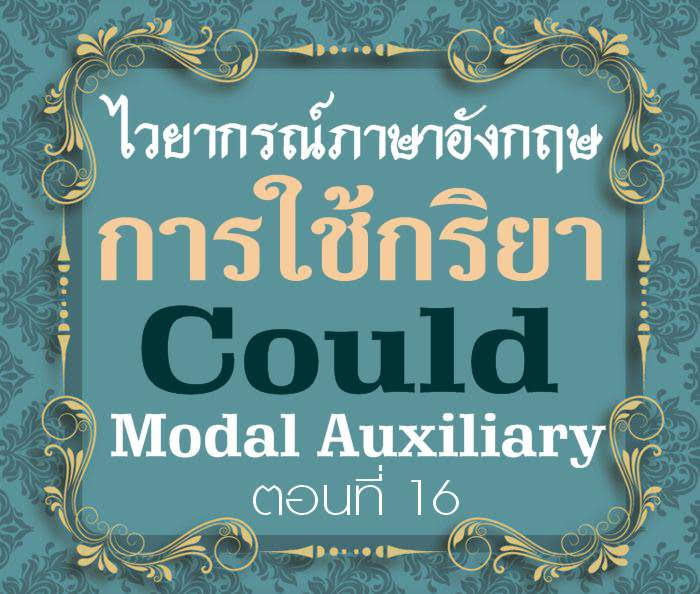


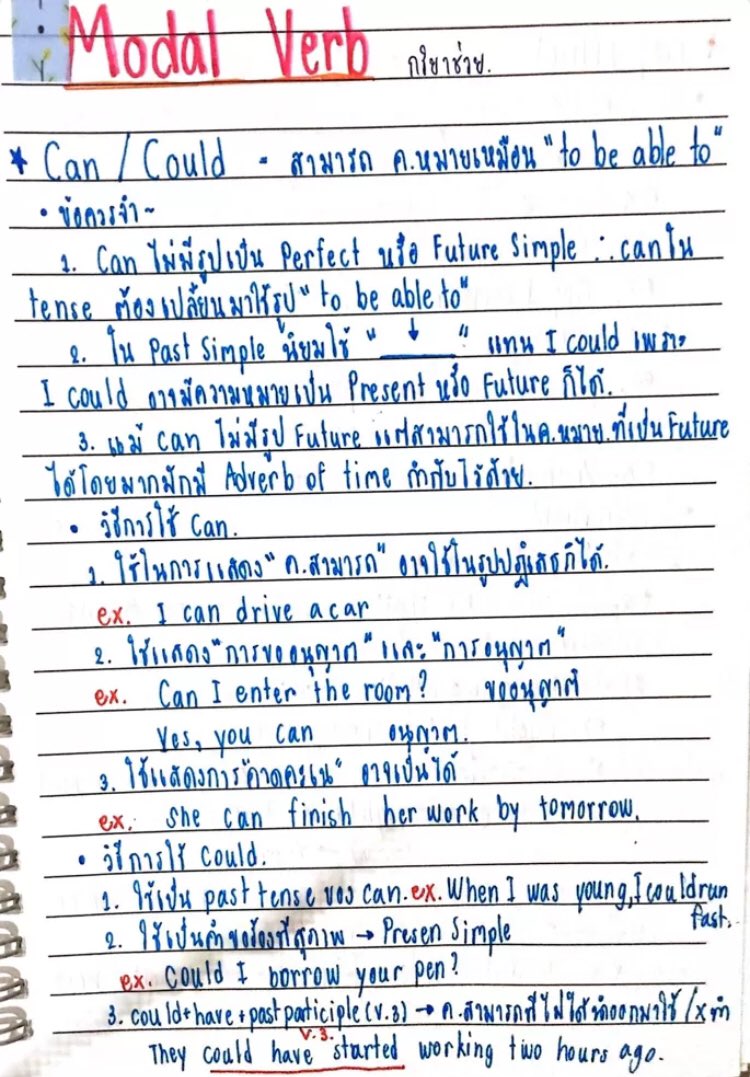

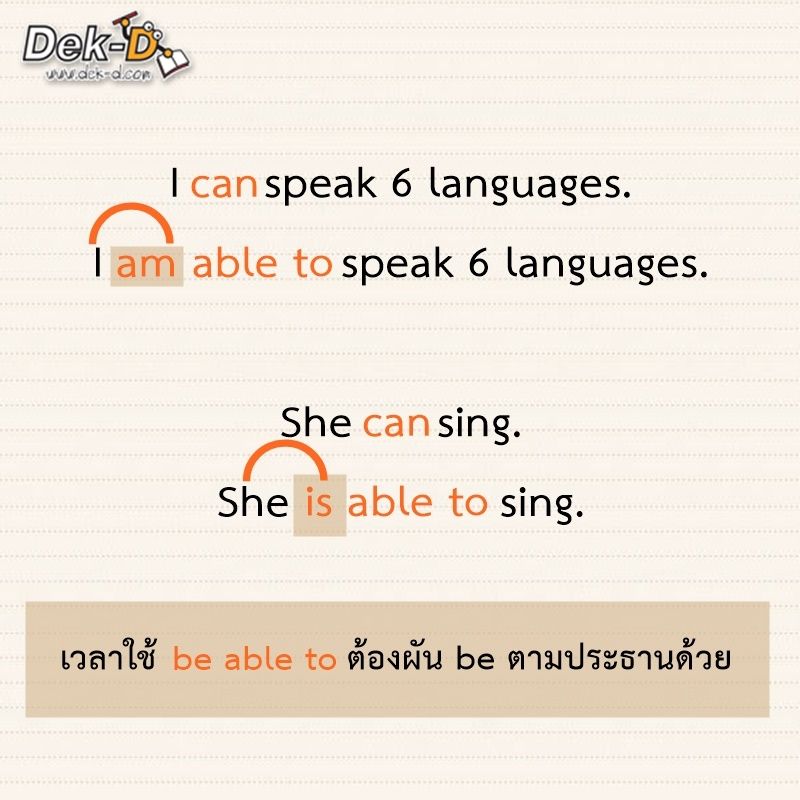
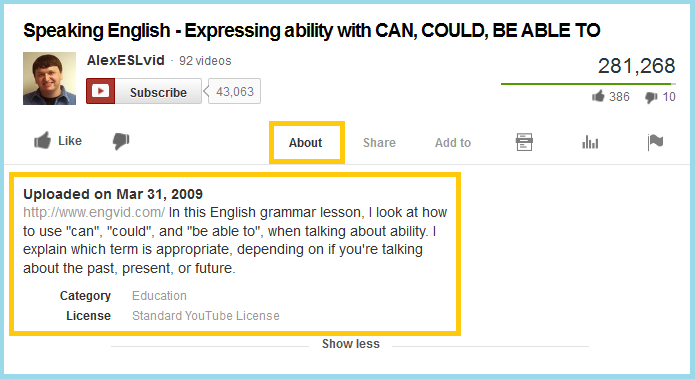






ลิงค์บทความ: หลักการใช้ can could.
ดูข้อมูลเพิ่มเติมเกี่ยวกับโพสต์หัวข้อนี้ หลักการใช้ can could.
- การใช้ Can และ Could ให้ถูกต้องตามหลักแกรมม่า
- หลักการใช้ can และ could ต่างกันอย่างไร
- Grammar: ครบเครื่องเรื่องควรรู้ในการใช้ Can และ Could
- หลักการใช้ Can กับ Could ใช้ยังไง มาดูกันเลยจ้า…
- หลักการใช้ can, could, be able to ที่ไม่ควรพลาด! – Engnow.in.th …
- Can และ Could ในประโยคคำถาม พร้อมโครงสร้าง ตัวอย่างและวิดีโอ …
- การเลือกใช้ Can และ Could ให้ถูกต้องตามหลักแกรมม่า เรียนอังกฤษ …
- หลักการใช้ Can, Could, May, Might, Must, Mustn’t, Should …
- การใช้ can และ could ในประโยคขอร้องแบบสุภาพ – tonamorn.com
ดูเพิ่มเติม: https://lasbeautyvn.com/category/digital-studios